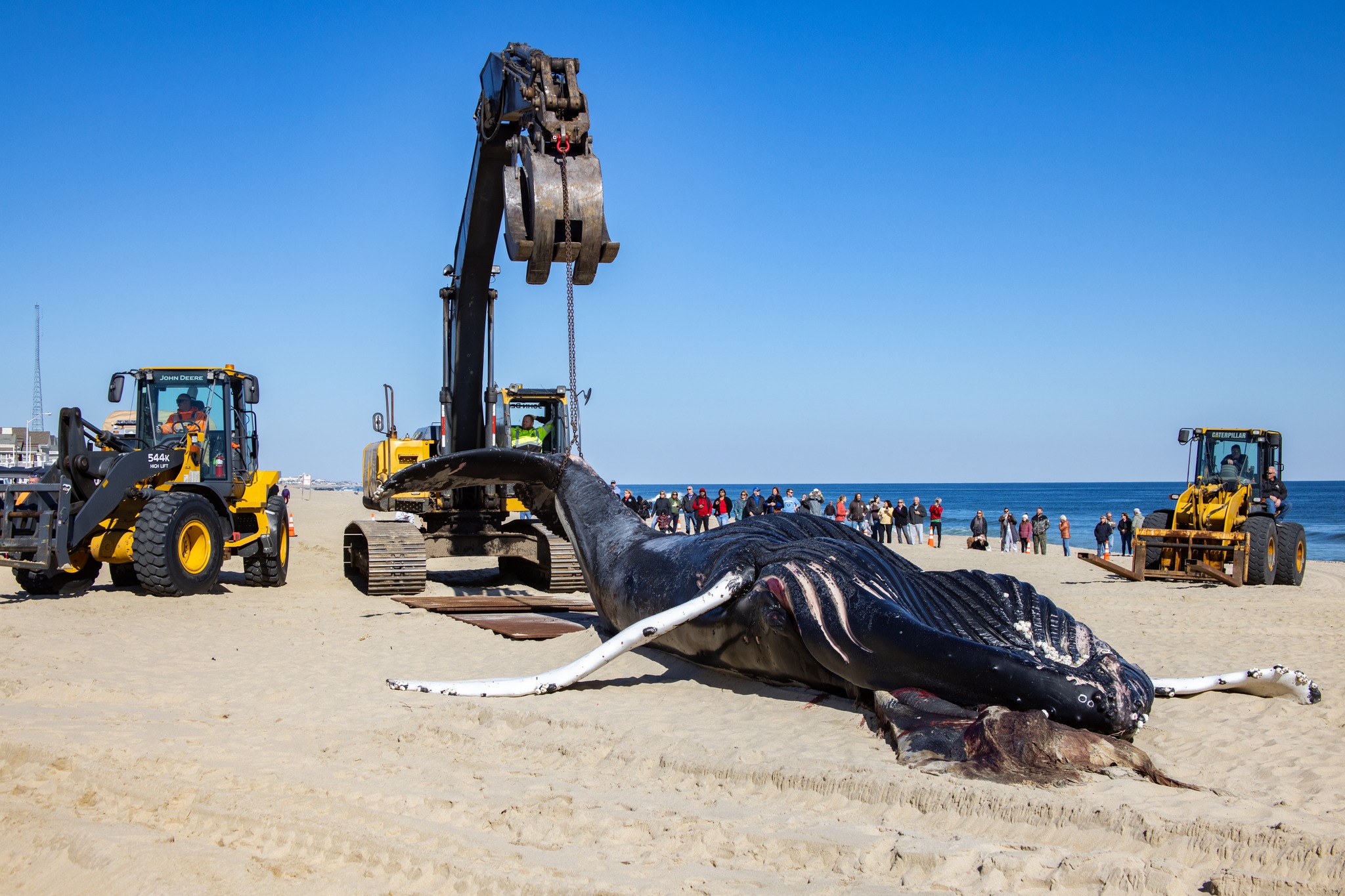A coastal New Jersey congressman introduced a bill Friday for the Government Accountability Office to investigate how federal agencies conduct environmental reviews of offshore wind energy projects.
Rep. Chris Smith, R-NJ, filed bill H.R. 1056 calling for “an immediate, comprehensive investigation into the environmental approval process for offshore wind projects” by the Bureau of Offshore Energy Management and National Marine Fisheries Service, amid continuing demands from wind power opponents in his district to suspend work on the projects after a string of recent whale strandings.
“Nine dead whales have washed up on our beaches since early December, and we still have no meaningful answers from (New Jersey) Governor (Phil) Murphy or the Biden Administration on the broader impact of these projects on the marine environment as they rush to build the largest offshore wind farm in the nation,” Smith said in a prepared statement.
“As part of a full-court press for answers, my legislation will investigate the level of transparency from federal agencies that greenlighted this aggressive offshore wind development and determine how much scrutiny was implemented in reviewing the environmental and maritime safety of this project, especially given its unprecedented size and scale,” said Smith.
Offshore wind critics contend ongoing work to survey wind turbine sites could have contributed to the repeated strandings of humpback whales since December. Officials with the National Oceanic and Atmospheric Administration strongly dispute the claim, saying there is no evidence that the projects are adding to an “unusual mortality event” of humpback strandings the agency has tracked since 2016.
Offshore wind industry advocates and environmental groups that support renewable energy have waded into the debate, contending that groups funded by fossil fuel interests are using it in an attempt to derail the fledging U.S. offshore industry.
Marine mammal experts who examined the carcasses of recently stranded whales reported several showed evidence of being hit by vessels – a factor seen repeatedly in earlier cases, according to NOAA.
One recent victim, a 35-foot long female humpback that washed up at Manasquan, N.J., Feb. 13 had been documented as feeding in the area for the first time Jan. 7 by the whale watching and conservation group Gotham Whale, according to an update by the Marine Mammal Stranding Center.
The center conducted a necropsy Feb. 14.
“The animal was in a state of advanced decomposition, which limited the necropsy. However, tissue samples were taken and will be sent out for analysis,” according to the center. “The whale was in good body condition and there were no obvious signs of external trauma.
“However, the internal examination showed evidence of vessel strike. There is not always obvious external evidence of vessel strikes, which is why internal exams are important. The results of the tissue analysis will help us determine if the vessel strike occurred before or after death.”
Meanwhile another dead whale washed up Friday at Far Rockaway, N.Y. A photo published by The Gothamist showed the animal in the surf with three deep slashes in its body, leading to speculation it was struck by a vessel propeller.
The Marine Mammal Stranding Center noted that NOAA currently has declared “active Seasonal Management Areas off all major ports in the mid-Atlantic region, including the ports of New York/New Jersey, which are in effect through April 30.”
All vessels 65 feet or longer must travel at 10 knots or less in the mapped SMAs. NOAA has also announced three active voluntary slow zones in effect from Nantucket to Chesapeake Bay, where mariners are asked to maintain speeds of 10 knots or less to reduce the danger of hitting whales.
In his call for a GAO investigation, Smith said he wants the watchdog agency “to investigate the sufficiency of the environmental review process for offshore wind projects, including the impacts on whales, finfish, marine mammals, benthic resources, commercial and recreational fishing, air quality and greenhouse gas emissions, vessel traffic, tourism, and the sustainability of shoreline beaches and inlets.”
The GAO must also look at “whether federal agencies adequately consulted major stakeholders including county and local officials, commercial and recreational fishermen, local environmental groups, and Jersey Shore residents, as well as determine the estimated cost of these projects and who pays for them.”
“The lack of conclusive evidence disproving the link between offshore wind development and whale deaths is sufficient to require a pause until assurances can be made to the public that the environmental and maritime safety of these projects has been properly reviewed,” said Smith.




